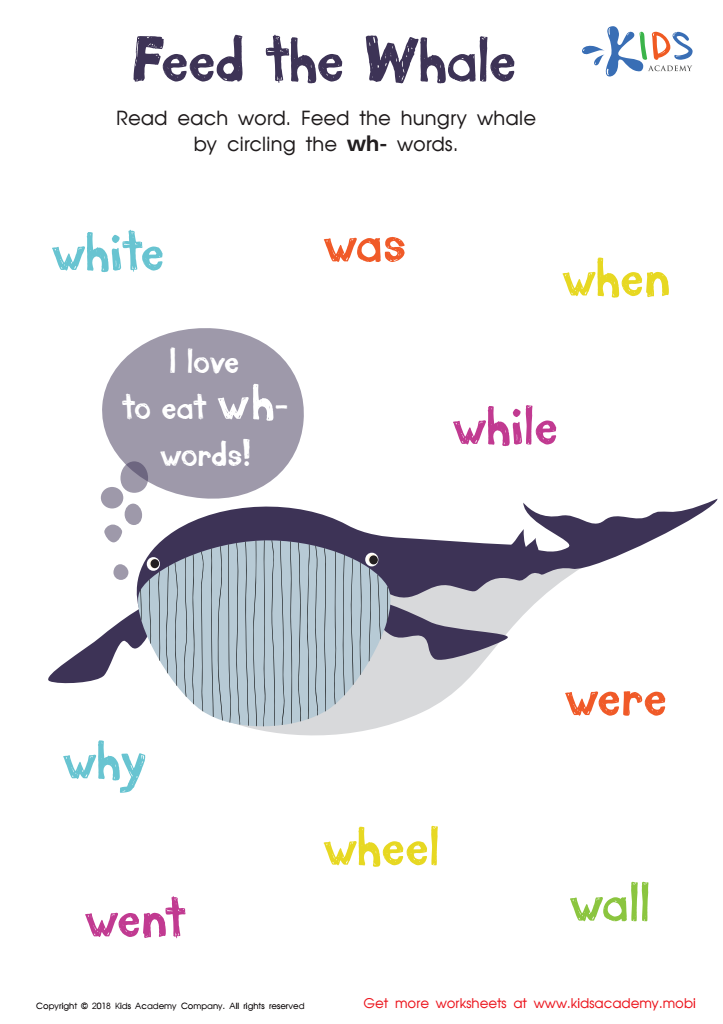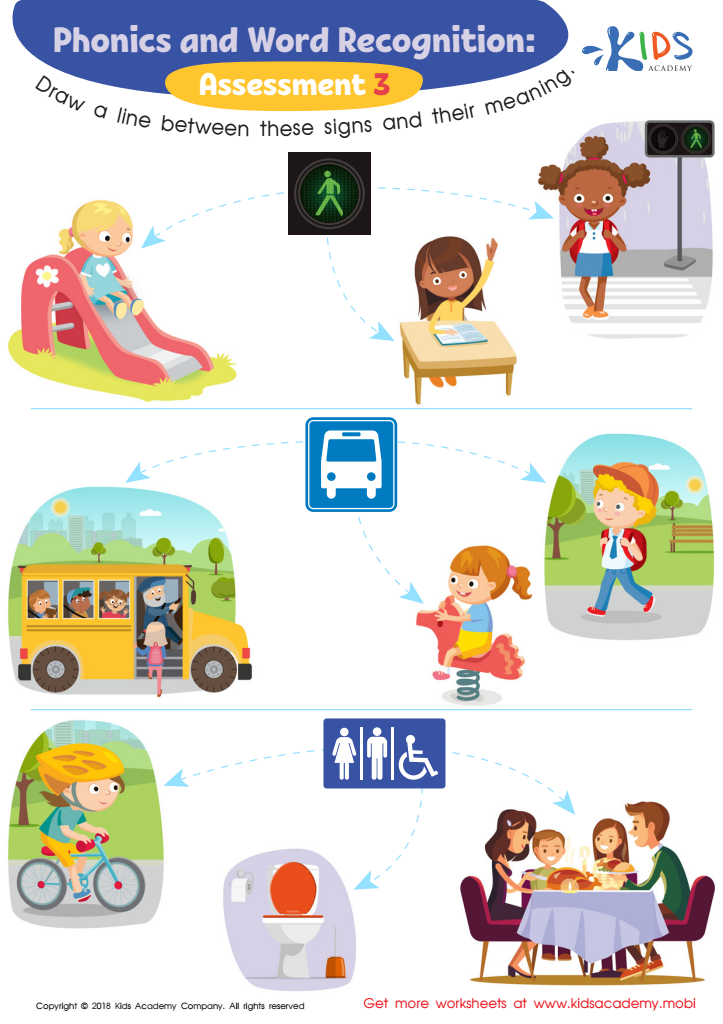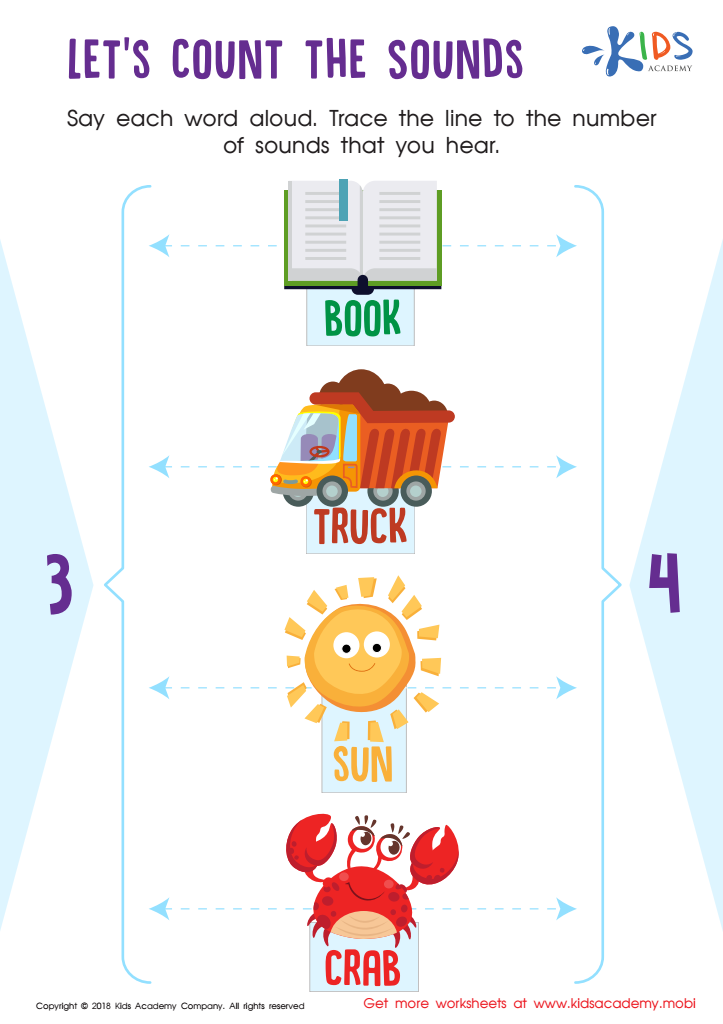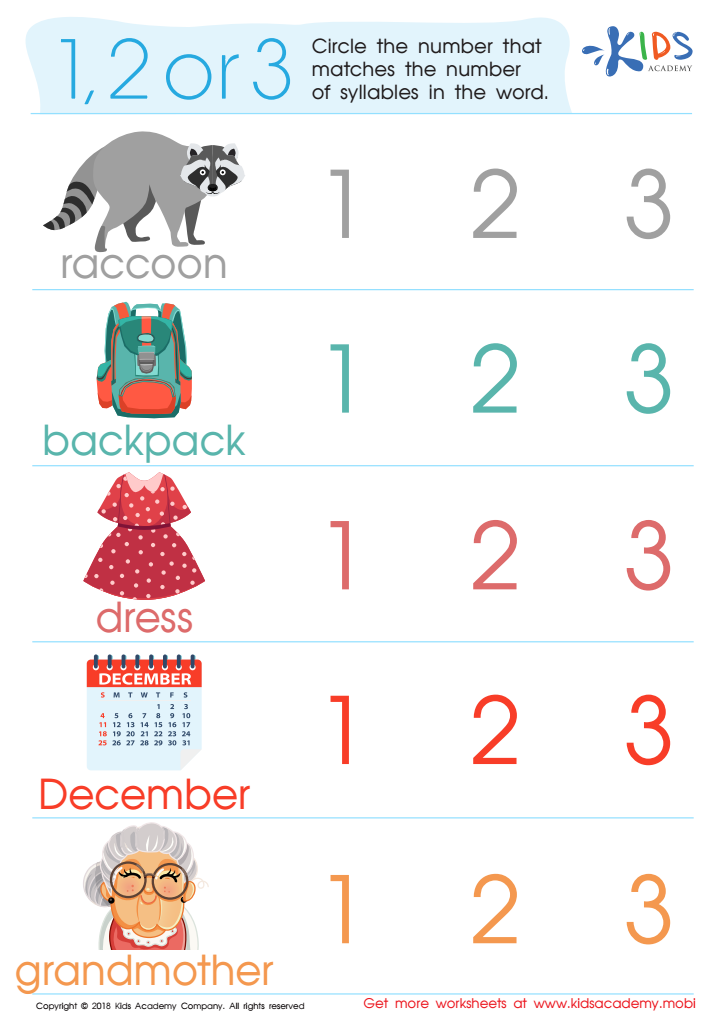Counting skills Phonics Worksheets
4 filtered results
-
From - To
Discover comprehensive "Counting Skills Phonics Worksheets" designed to integrate essential math and literacy skills for early learners. These engaging activities help children not only master their phonics but also build foundational counting and number recognition abilities. Created by educational experts, these printable worksheets offer a variety of fun exercises that make learning interactive and enjoyable. Perfect for preschool and kindergarten students, these resources enhance cognitive development and prepare young minds for academic success. Visit Kids Academy to access free and premium printable worksheets tailored to support and nurture your child’s early educational journey.


Feed the Whale Worksheet


Phonological Awareness: Assessment 3 ELA Worksheet


Let's Count the Sounds Worksheet


1, 2 or 3? Worksheet
Counting skills and phonics form the foundational building blocks for young learners, and they deserve significant attention from both parents and teachers.
Counting skills are essential as they lay the groundwork for more complex mathematical concepts. By learning to count, children develop a sense of number order, value, and the concept of quantity, which are critical for problem-solving and logical thinking. Early mastery of counting also boosts confidence and sets the stage for a positive attitude toward math, a subject that many find challenging later on.
Phonics, on the other hand, is crucial for reading and writing proficiency. Phonics instruction helps children understand the relationship between written letters and spoken sounds, enabling them to decode new words and improve their reading fluency. Strong phonics skills contribute to better spelling and an expanded vocabulary, key components of written and oral communication. Moreover, reading fluency improves comprehension, allowing children to absorb knowledge across all subjects more effectively.
Both counting and phonics also improve cognitive abilities such as memory, attention, and processing speed. When teachers and parents prioritize these skills, they provide children with a robust educational foundation. This support fosters long-term academic success, enabling children to become confident, capable learners who are well-prepared for future challenges.
 Assign to My Students
Assign to My Students



















